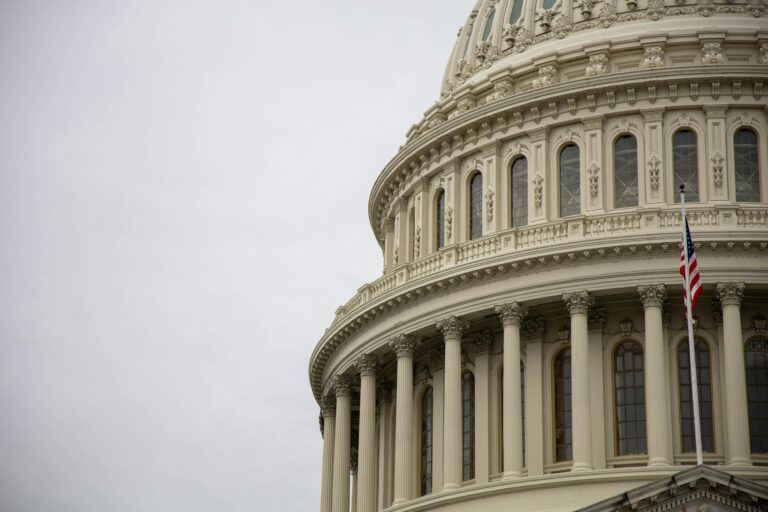
On June 23, 2016, the United Kingdom (UK) held a historic referendum in which 52% of voters chose to leave the European Union (EU), marking the beginning of Brexit. This decision, which formally took effect on January 31, 2020, has had profound political, economic, and social consequences, not only for the UK and the EU but also for the broader international community. Brexit signaled the end of a 47-year relationship between the UK and the EU, and its ramifications continue to reshape global politics and international relations.
This article explores the political, economic, and social impacts of Brexit on the UK, Europe, and the broader international community. It will examine how Brexit has altered political dynamics within the UK, challenged the European integration project, and impacted global trade and diplomacy.
Political Impacts of Brexit
1. Political Division and Realignment in the UK
Brexit has exposed and exacerbated deep political divisions within the UK. The referendum vote revealed sharp divides based on geography, class, and education. England and Wales voted to leave the EU, while Scotland and Northern Ireland voted to remain. This divergence has intensified debates over the future of the UK’s political union, with calls for Scottish independence and concerns over Northern Ireland’s status within the UK.
- Scottish Independence Movement: Scotland’s overwhelming vote to remain in the EU (62%) has reignited the push for independence. The Scottish National Party (SNP) argues that Brexit, which was imposed on Scotland against its will, justifies a second independence referendum. Scottish First Minister Nicola Sturgeon has repeatedly called for a new vote, claiming that Brexit has changed the political landscape since the 2014 independence referendum, where 55% voted to remain in the UK. The prospect of Scotland leaving the UK remains a significant political issue post-Brexit.
- Northern Ireland and the Good Friday Agreement: Brexit has also complicated the delicate political balance in Northern Ireland, which voted to remain in the EU by 56%. The decision to leave the EU raised concerns about the re-imposition of a hard border between Northern Ireland (part of the UK) and the Republic of Ireland (an EU member), which could threaten the peace established by the Good Friday Agreement of 1998. To avoid a hard border, the Northern Ireland Protocol was negotiated, keeping Northern Ireland aligned with certain EU regulations. This arrangement, however, has created new tensions, as many unionists argue it distances Northern Ireland from the rest of the UK, while others see it as necessary to maintain peace.
2. Challenges to European Integration
Brexit has had significant implications for the European Union, both in terms of its political cohesion and its broader project of European integration. The departure of the UK, one of the EU’s largest and most influential members, has prompted reflection on the future of the European project and the challenges of maintaining unity among diverse member states.
- Rise of Euroscepticism: The success of the Leave campaign emboldened Eurosceptic movements across Europe, raising concerns that other member states might follow the UK’s example and seek to leave the EU. Parties such as France’s National Rally, Italy’s Lega, and Germany’s Alternative for Germany (AfD) used Brexit as a rallying cry for reclaiming national sovereignty and pushing back against EU influence. However, the economic and political difficulties faced by the UK post-Brexit have somewhat dampened calls for “exits” in other EU countries, as many now view Brexit as a cautionary tale rather than a model to emulate.
- Strengthening of European Unity: Paradoxically, Brexit has also strengthened European unity in some respects. The EU’s ability to negotiate a unified position throughout the Brexit process demonstrated its cohesion in the face of adversity. Additionally, Brexit has reinforced the importance of European integration for many EU member states, especially in areas such as economic cooperation, security, and environmental policy. This has led to discussions about deepening integration in areas like defense and foreign policy, where the EU has traditionally been weaker.
Economic Impacts of Brexit
1. Economic Challenges for the UK
Brexit has had significant economic repercussions for the UK, with both immediate and long-term impacts. The uncertainty surrounding the withdrawal process, coupled with the changes to trade relationships, has created new challenges for businesses, investors, and workers.
- Trade and Supply Chain Disruptions: One of the most immediate economic consequences of Brexit has been the disruption to trade between the UK and the EU, its largest trading partner. The end of the free movement of goods, services, and people has led to increased bureaucracy, customs checks, and regulatory hurdles. While the UK and the EU reached a trade agreement in December 2020, the deal does not cover all sectors, and many businesses have faced higher costs and delays in supply chains. Industries such as fishing, agriculture, and manufacturing have been particularly affected, as they rely on seamless cross-border trade.
- Financial Services and London’s Role: The UK’s financial services sector, particularly in London, has been a key driver of the British economy. However, Brexit has raised concerns about London’s role as a global financial hub. The UK’s departure from the EU means that British financial institutions no longer have automatic access to European markets, a privilege known as “passporting.” While some financial firms have relocated parts of their operations to EU cities such as Paris, Frankfurt, and Dublin, London remains a major financial center. However, the long-term implications of Brexit for the financial sector remain uncertain, and the UK will need to renegotiate its role in global finance.
- Labor Market Impacts: The end of the free movement of people between the UK and the EU has had significant implications for the labor market. Sectors that rely heavily on EU workers, such as agriculture, healthcare, and hospitality, have faced labor shortages since Brexit, as fewer EU nationals are able or willing to work in the UK. The government has introduced new immigration policies to address these shortages, but businesses continue to struggle with the lack of available workers.
2. Impact on the European Economy
Brexit has also had economic consequences for the EU, though the effects have been less severe than those experienced by the UK. The EU remains a large and diversified economic bloc, but the departure of the UK, one of its largest economies, has created both challenges and opportunities.
- Trade Diversification: In response to Brexit, the EU has sought to diversify its trade relationships and reduce its reliance on the UK market. This has led to the negotiation of new trade agreements with countries such as Japan, Canada, and Australia, as well as efforts to strengthen internal EU trade. While Brexit has created some disruption in EU-UK trade, the EU has been able to mitigate the impact by expanding its economic ties with other regions.
- Loss of a Major Contributor: The UK was a significant financial contributor to the EU budget, and its departure has left a gap in funding for EU programs. While other member states have stepped in to fill the void, the loss of the UK’s contributions has forced the EU to re-evaluate its spending priorities and find new sources of revenue. The EU has also used Brexit as an opportunity to discuss reforms to its budgetary system, including proposals for new EU-wide taxes and financial mechanisms.
Social and Cultural Impacts of Brexit
1. Identity and Nationalism in the UK
Brexit has intensified debates over national identity and sovereignty within the UK. The Leave campaign was driven, in part, by concerns about immigration, control over borders, and a desire to “take back control” from Brussels. These themes resonated with many voters, particularly in England and Wales, who felt that their national identity was being eroded by EU membership.
However, Brexit has also sparked a broader discussion about what it means to be British in the 21st century. The divergence between England and the other nations of the UK—Scotland, Northern Ireland, and Wales—over Brexit has raised questions about the future of the UK as a political union. While some see Brexit as an opportunity to reclaim British sovereignty, others view it as a threat to the cohesion of the United Kingdom.
2. Social Divisions and Polarization
Brexit has deepened social divisions within the UK, leading to increased polarization between different regions, age groups, and social classes. The referendum revealed a stark divide between urban and rural areas, with major cities such as London voting overwhelmingly to remain in the EU, while rural areas and small towns tended to support leaving. This geographic divide has been mirrored by demographic divisions, with younger voters, who largely supported remaining in the EU, feeling disenfranchised by a decision made by older generations.
The polarization caused by Brexit has persisted long after the referendum, affecting political discourse and creating lasting tensions within communities. The deep divide over the UK’s future relationship with Europe has made it difficult for the country to heal and move forward, and Brexit remains a contentious issue in British politics.
Global Implications of Brexit
1. Impact on Global Trade and Diplomacy
Brexit has significant implications for global trade and diplomacy. As the UK seeks to redefine its role outside of the EU, it has prioritized negotiating new trade agreements with countries around the world. The UK has already signed trade deals with countries such as Japan, Australia, and Canada, but its ability to secure favorable terms in these agreements will be crucial for its post-Brexit economic success.
Brexit has also shifted the dynamics of international diplomacy. The UK, once a key player within the EU, now finds itself outside of the bloc’s decision-making processes. This has implications for the UK’s influence on global issues such as climate change, security, and trade. The UK will need to rely more heavily on alliances such as NATO and the G7 to maintain its global influence.
2. Challenges to Multilateralism
Brexit has raised broader questions about the future of multilateralism and the global liberal order. The decision to leave the EU, driven by concerns over national sovereignty, immigration, and globalization, reflects a broader trend of populism and nationalism that has emerged in recent years. Brexit can be seen as part of a wider backlash against international institutions and global governance, with parallels to other populist movements around the world.
The UK’s departure from the EU has also prompted discussions about the future of international cooperation in areas such as trade, climate change, and security. As global challenges become increasingly complex, the need for multilateral solutions has never been greater. However, the rise of nationalism and protectionism, as exemplified by Brexit, poses a challenge to the ability of countries to work together on these issues.
Conclusion
Brexit is one of the most significant political events of the 21st century, with far-reaching implications for the UK, Europe, and the broader international community. Politically, it has exposed deep divisions within the UK and challenged the future of the European integration project. Economically, it has disrupted trade and raised questions about the UK’s role in global markets. Socially, it has intensified debates about identity, nationalism, and sovereignty.
Globally, Brexit has shifted the dynamics of trade and diplomacy, raising questions about the future of multilateralism and the international order. As the UK continues to navigate its post-Brexit future, the world will be watching to see how it adapts to its new role outside of the European Union and what this means for global politics in the years to come.




